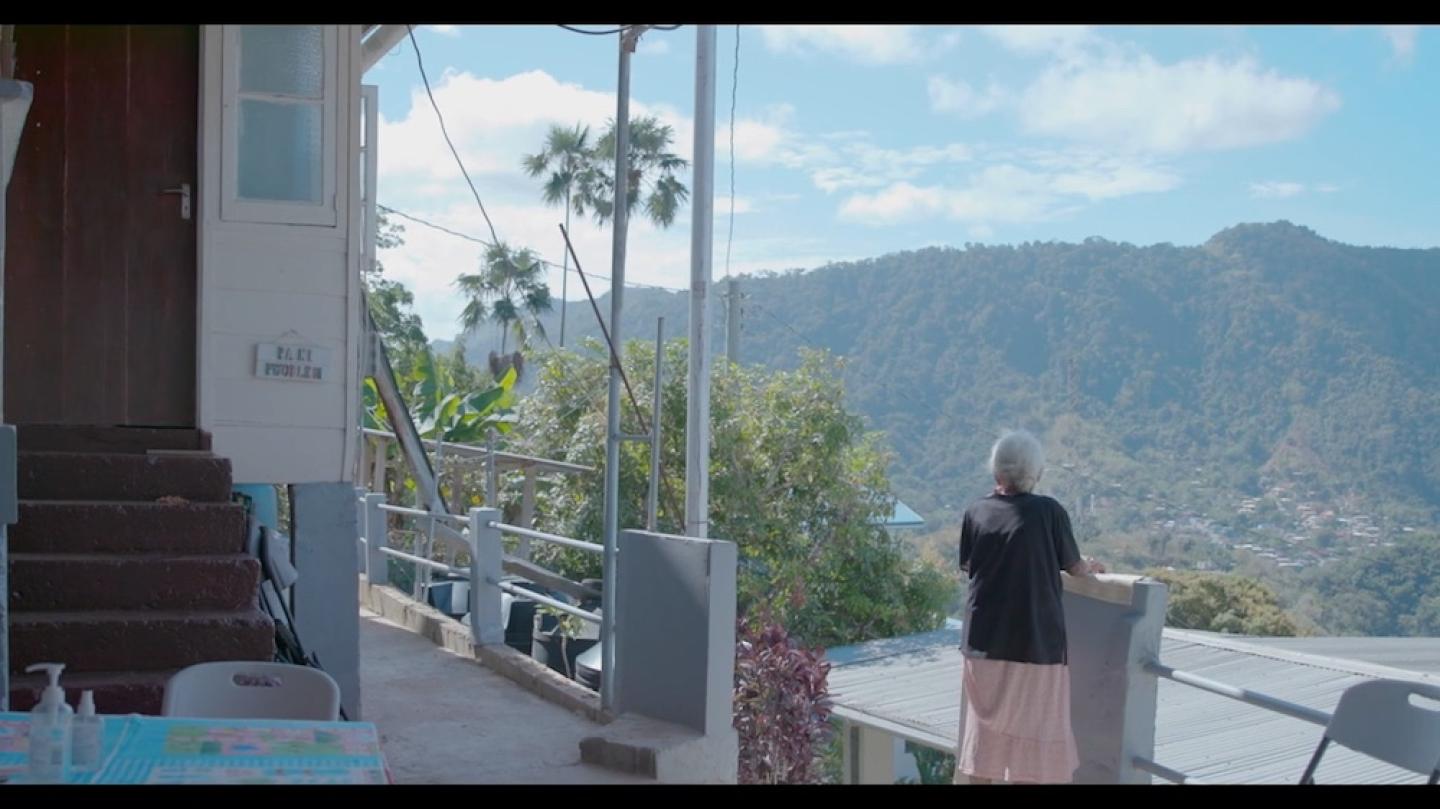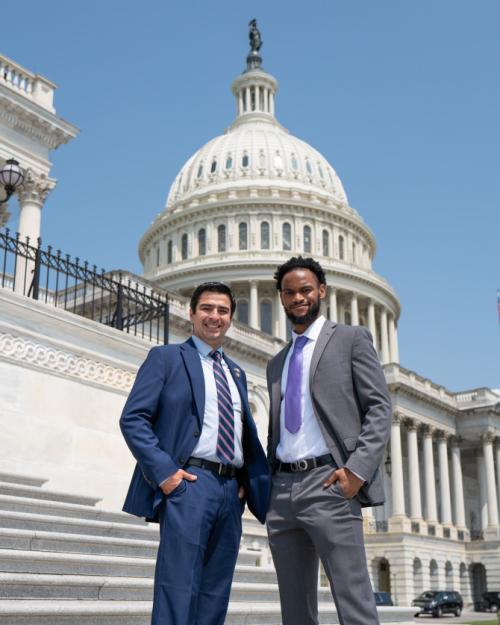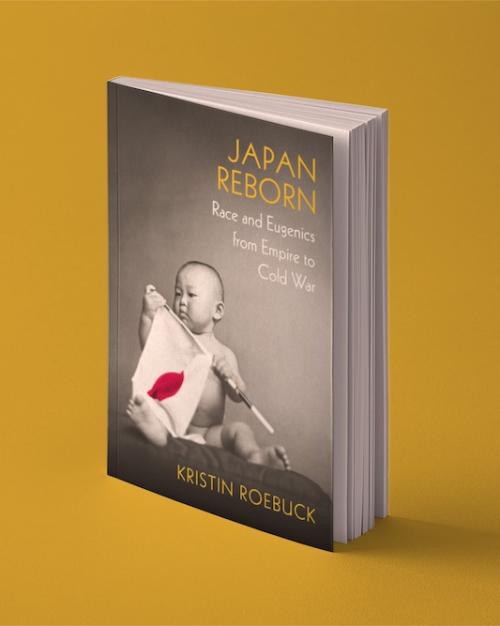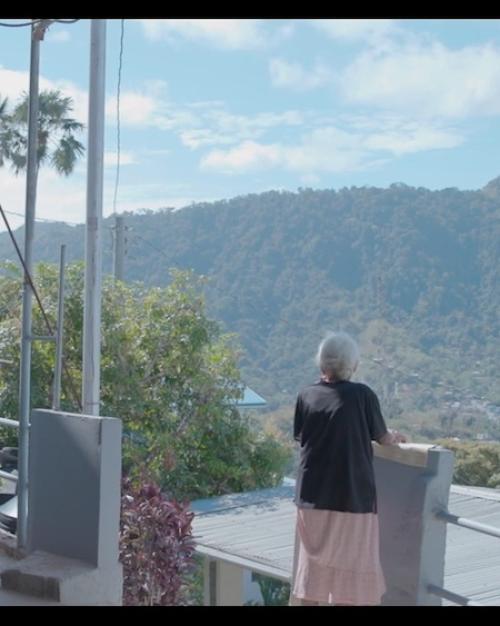“Possible Landscapes,” a new feature-length documentary film exploring the lived experience of landscapes and environments in the Caribbean islands of Trinidad and Tobago, will have its debut screening on Wednesday, Sept. 25, 7 p.m. at Cornell Cinema. A reception will follow. The event is free and the public is invited.
The film is a cross-disciplinary collaboration between Natalie Melas, professor of comparative literature in the College of Arts and Sciences, who works on Caribbean literature and thought, and Tao DuFour, former assistant professor in the College of Architecture, Art and Planning, and currently Fellow in Architecture at Trinity College Cambridge. The film was directed by professional documentary filmmaker Kannan Arunasalam.
The film seeks to “query the formation of environmental and climate imaginaries, with a view to getting at larger historical questions—of migration, plantation societies, extractivism, race, and the legacies of colonialism—that inform everyday practices in ways that are difficult to identify and to articulate, because they are concretely lived,” write the researchers.
“Possible Landscapes” joins seven people in seven different regions of the islands in the course of their daily lives: Kevin, a fisherman on the east coast suffering the recent loss of one of his crew members at sea; four generations of the Joseph family in the steep hillsides of the northern range; Captain “Spaceman” Philips and his glass-bottomed boat in Tobago, from which he has witnessed the decline of the coral reefs; Crystal, a trade unionist active in supporting workers who lost their jobs when a major oil refinery was closed; Romulas, known as the “last sugar cane farmer” in the central plains and his Venezuelan workers; Stephanie, a nurse who worked in the oil fields in the south starting just after World War II; and Tony, originally from Jamaica, a climate change analyst, agriculturalist and rabbit farmer in St Joseph.
The two-year research project that resulted in the film, “Possible Landscapes: Documenting Environmental Experience in Trinidad and Tobago,” was funded by a two-year team research grant from Cornell’s Migrations: A Global Grand Challenge and the Mellon Foundation’s Just Futures Initiative.
“The project grows from a Mellon Expanded Practice Seminar DuFour and I taught in fall of 2019, which led to the making of an award-winning documentary short, ‘We Love We Self Up Here,’ which debuted at Cornell in November 2021,” said Melas. “That short was a kind of draft and inspiration for ‘Possible Landscape,’ which is significantly more expansive and ambitious, entailing field work and archival research over a two-year span and the dedicated work of two talented research assistants, both students in the architecture department, Carla de Haro and Keiron Curn de Nobriga.”
In addition to the screening, two of the team’s Trinidadian collaborators will be on campus to present on their work:
- Deborah Villarroel-Lamb, an engineering professor at University of the West Indies, St Augustine, and an expert in flooding and coastal erosion, will present on “Towards Caribbean Coastal Resilience: Challenges & Opportunities” on Tues., Sept. 24 for the Environmental Fluid Mechanics and Hydrology Seminar in Hollister Hall, room B52, at 4:15 p.m.
- Mario Lewis, Trinidadian artist and agroforester, will give an artist’s talk titled "Forest Notebooks: The Interaction Between Art, Community, and Ecology" on Sept. 25 at 4:45 p.m. at the Toboggan Lodge, 38 Forest Home Drive.
The screening of “Possible Landscapes” is co-sponsored by The Society for the Humanities, the Arts and Sciences Dean’s Office, the Africana Studies and Research Center, the Institute for Comparative Modernities, the Departments of Comparative Literature, Literatures in English and Romance Studies (all A&S); Architecture (AAP), Environment and Sustainability (CALS/A&S); and Latin American and Caribbean Studies (Einaudi).
Linda B. Glaser is news and media relations manager for the College of Arts and Sciences.





